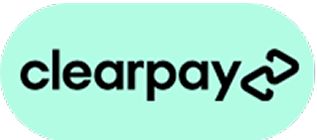Level 3 Diploma for the Children & Young People's Workforce (Learning, Development & Support Services) - RQF
- PRIVATE
- 1 year
- Level 3, Level 3 Diploma
- 442Guided Learning Hours
- 65 Credits
- Course Material
- Self-study Online
- Ofqual Regulated Qualification
- 32UCAS Points

Course Overview
Empower Your Future in Childcare
Prepare for a fulfilling career in child and youth services with this Level 3 Diploma for the Children and Young People’s Workforce, an Ofqual-regulated qualification. With a strong foundation in theory and practical knowledge, this course equips you with the skills to support young people’s developmental and educational needs. It ensures personal and professional growth, leading to rewarding career opportunities in various childcare settings. This Children and Young People’s Workforce Level 3 Diploma is designed for learners presently working with or aspiring to work with children and young people from birth to 19 years old. Upon completing this course, you can work independently with children, possessing the knowledge, understanding, and skills necessary to foster child and young person development, support positive outcomes, ensure their health and safety, and promote overall well-being. The “Learning, Development and Support Services” section of this course focuses on providing the skills, knowledge, and understanding to support the learning, development, and overall well-being of children and young people in schools, community centres, and support services. Ofqual is England’s main government-appointed regulatory body, regulating school and college qualifications, and vocational and technical qualifications. (Detailed information is given below).
This Level 3 Diploma is allocated 32 UCAS points. For learners seeking to progress their career, this qualification can be a stepping stone to higher-level positions such as nursery manager. You can also pursue positions including residential care worker and special educational needs (SEN) assistant. Additionally, this course provides a strong foundation for higher education and training, like a Foundation Degree in Early Childhood Studies.
This Children and Young People’s Workforce Diploma (RQF) prepares you for employment such as an apprenticeship or for further learning and training. Additionally, there are many roles you can take on working within social care, educational, and support service settings. (RQF qualifications carry meaning and recognition. RQFs are regulated by Ofqual, the Office of Qualifications and Examinations Regulation that regulates qualifications, examinations, and assessments in England).
![]()
Why South London College?
Take Charge of Your Future with South London College
As a trusted online provider, South London College believes in the transformative power of education. A highly regarded learning platform in the United Kingdom, we are dedicated to providing individuals with life-changing opportunities. Our primary goal is to ensure our learners meet their educational needs and achieve personal growth and professional advancement. With our commitment to delivering top-notch learning materials, exceptional experiences, and comprehensive services, we strive to motivate and empower our learners to acquire new skills, enhance their existing ones, and remain competitive in their chosen fields. This is an excellent chance for individuals to obtain the Level 3 Diploma for the Children and Young People’s Workforce (RQF) (Learning, Development and Support Services) and gain a complete understanding of key principles and practices of working within social and educational settings. Don’t let this opportunity pass you by—invest in yourself, improve your skills, and propel your career forward with South London College.
Key Benefits of Learning with South London College
- Enjoy the most affordable prices on the market for our courses, with a price match included.
- Access expertly designed and developed e-Learning content.
- A dedicated personal tutor and a key account manager assigned to you.
- Flexibility is our priority – study anytime, anywhere to fit your schedule.
- Receive 12 months of online access to our learning portal and tutor support.
- Develop your skills and increase employability in the UK and beyond.
- Our friendly customer support team is available to answer your questions.
- Participating Instructor led virtual group discussions (Blended learning experience).
- 14 Days money back guarantee (T & C apply).
- Receive quick feedback and results for your assessments.
- Interest free instalment payment plan.
- Access to free CPD courses for Continuous Professional Development.
What Will I Learn?
Key Features
| Learning Outcomes |
|
| Regulated by | OFQUAL
The Office of Qualifications and Examinations Regulation (Ofqual) is a non-ministerial government department that regulates qualifications, exams, and assessments in England. Ofqual ensures that all qualifications offered by recognised awarding organisations meet national standards, so you can trust that any Ofqual-regulated certificate is high quality and widely recognised by employers and universities. RQF The Regulated Qualifications Framework (RQF) is a system used in England, Northern Ireland, and Wales to categorise and regulate qualifications based on their level of difficulty and size. RQF is jointly regulated by England’s regulator Ofqual, Wales DCELLS, and Northern Ireland’s CCEA. The RQF ensures qualifications are standardised, making it easier for learners, employers, and educational institutions to understand the value and level of each qualification. The framework consists of nine levels, from Entry Level to Level 8, with each level indicating the complexity and depth of learning. For a qualification to be recognised as part of the Regulated Qualifications Framework (RQF), it must be created or approved by an awarding body that is acknowledged by one of the government-appointed regulatory bodies. |
| Course Highlights |
|
|
Who is this Course For?
|
This course benefits a wide range of individuals in the childcare and youth services sectors.
|
| Entry Requirements |
|
| Average Completion Timeframe |
T&C apply |
| Method of Assessment | This qualification is competency-based, meaning your assessment will revolve around collecting evidence while performing your regular work duties. Importantly, this course doesn’t have exams. Here’s an overview of how you will be assessed throughout the course:
For further details or any specific questions about the assessment process, please click the ‘Enquiry’ button below to get in touch with us. |
| Certification | Upon successful completion of the course, individuals will be awarded the Ofqual-regulated qualification of the Level 3 Diploma for the Children and Young People’s Workforce (Learning, Development and Support Services) (RQF). |
|
Academic Progression |
Upon successfully completing the Level 3 Diploma, you can advance to Level 4 and 5 qualifications, and you also have the option to progress to a degree programme, enabling a comprehensive academic and professional development pathway.
Next Steps for a Possible Academic Progression Pathway:
Additional qualifications you can progress to:
|
| Career Path | Your Pathway to Supporting the Next Generation
The Level 3 Diploma for the Children and Young People’s Workforce (RQF) opens rewarding career opportunities. Here are some career prospects you can explore, once you’ve achieved the Level 3 Diploma.
With further training and experience, you can advance to senior positions and specialised roles in the field. |
| Learner Support |
|
Course Curriculum
Unit 01
Engage in Personal Development in Health, Social Care or Children’s and Young People’s Settings
- Understand what is required for competence in own work role
- Be able to reflect on practice
- Be able to evaluate own performance
- Be able to agree a personal development plan
- Be able to use learning opportunities and reflective practice to contribute to personal development
Unit 02
Promote Communication in Health, Social Care or Children’s and Young People’s Settings
- Understand why effective communication is important in the work setting
- Be able to meet the communication and language needs, wishes and preferences of individuals
- Be able to overcome barriers to communication
- Be able to apply principles and practices relating to confidentiality
Unit 03
Principles for Implementing Duty of Care in Health, Social Care or Children’s and Young People’s Settings
- Understand how duty of care contributes to safe practice
- Know how to address conflicts or dilemmas that may arise between an individual’s rights and the duty of care
- Know how to respond to complaints
Unit 04
Promote Equality and Inclusion in Health, Social Care or Children’s and Young People’s Settings
- Understand the importance of diversity, equality and inclusion
- Be able to work in an inclusive way
- Be able to promote diversity, equality and inclusion
Unit 05
Support Children and Young People’s Health and Safety
- Understand how to plan and provide environments and services that support children and young people’s health and safety
- Be able to recognise and manage risks to health, safety and security in a work setting or offsite visits
- Understand how to support children and young people to assess and manage risk for themselves
- Understand appropriate responses to accidents, incidents emergencies and illness in work settings and off-site visits
Unit 06
Develop Positive Relationship with Children, Young People and Others Involved in Their Care
- Be able to develop positive relationships with children and young people
- Be able to build positive relationships with people involved in the care of children and young people
Unit 07
Working Together for the Benefit of Children and Young People
- Understand integrated and multi agency working
- Be able to communicate with others for professional purposes
- Be able to support organisational processes and procedures for recording, storing and sharing information
Unit 08
Understand Child and Young Person Development
- Understand the expected pattern of development for children and young people from birth – 19 years
- Understand the factors that influence children and young people’s development and how these affect practice
- Understand how to monitor children and young people’s development and interventions that should take place if this is not
following the expected pattern - Understand the importance of early intervention to support the speech, language and communication needs of children and young people
- Understand the potential effects of transitions on children and young people’s development
Unit 09
Understand How to Support Positive Outcomes for Children and Young People
- Understand how the social, economic and cultural environment can impact on the outcomes and life chances of children and young people
- Understand how practitioners can make a positive difference in outcomes for children and young people
- Understand the possible impact of disability, special requirements (additional needs) and attitudes on positive outcomes for children and young people
- Understand the importance of equality, diversity and inclusion in promoting positive outcomes for children and young people
Unit 10
Promote Child and Young Person Development
- Be able to assess the development needs of children or young people and prepare a development plan
- Be able to promote the development of children or young people
- Be able to support the provision of environments and services that promote the development of children or young people
- Understand how working practices can impact on the development of children and young people
- Be able to support children and young people’s positive behaviour
- Be able to support children and young people experiencing transitions
Unit 11
Understand How to Safeguard the Wellbeing of Children and Young People
- Understand the main legislation, guidelines, policies and procedures for safeguarding children and young people
- Understand the importance of working in partnership with other organisations to safeguard children and young people
- Understand the importance of ensuring children and young people’s safety and protection in the work setting
- Understand how to respond to evidence or concerns that a child or young person has been abused or harmed
- Understand how to respond to evidence or concerns that a child or young person has been bullied
- Understand how to work with children and young people to support their safety and wellbeing
- Understand the importance of safety for children and young people
Still have more questions about this course? Give our team a call on
FAQ's




















Career Advancement
This course has made me more confident in my career.
Flexibility
The flexible schedule allowed me to study without disrupting my current job.
Beneficial
I found this course to be beneficial.